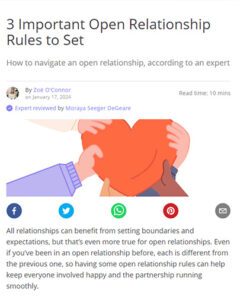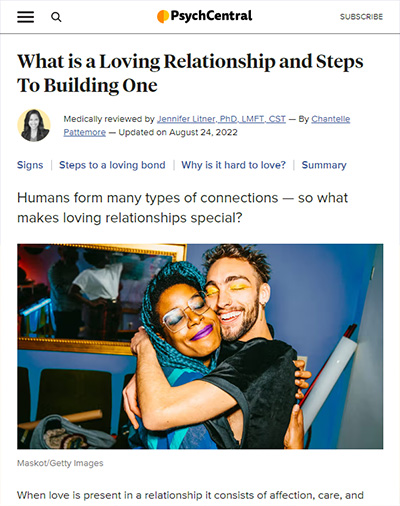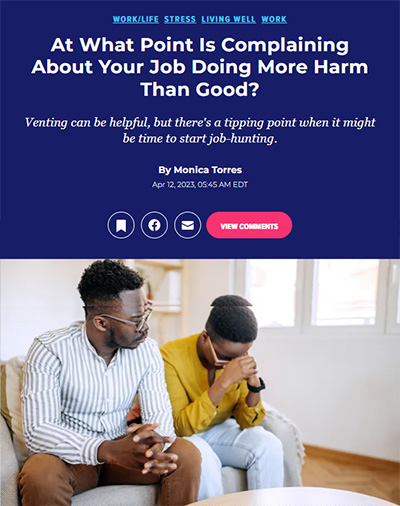
I was asked, not too long ago, to talk about when it’s okay to not accept an apology. This topic frequently comes up in my work, and I’ve found that you can’t talk about apologies without also talking about forgiveness. Things turn philosophical very quickly, as people’s definitions of forgiveness are impacted by a few different factors like religious background and upbringing. Accepting an apology can mean different things to different people as well. Can you accept an apology without forgiving? Is forgiving important? necessary? mandatory? This is never a brief or uncomplicated conversation, but it is a conversation worth having. So, let’s address a few specific questions:
(1) When is it okay to not accept an apology?
To be clear, it is ALWAYS okay to not accept an apology. You don’t owe anyone your acceptance or forgiveness. That sounds harsh, I know, but it is the reality. This comes up a lot (especially in my work with women) and it tends to come down to these expectations around not “being mean.” It’s the polite thing to do to accept an apology. But what about when the apology is insincere? When you know this person is apologizing but does not feel any remorse? What about when you’re receiving the same apology, for the same hurtful or inconsiderate behavior, over and over? What about when you really, truly, do not forgive this person? Maybe it’s too soon, maybe you’re still hurt and you’re just not ready yet? Perhaps you’ll never be ready.
We are trained with this knee-jerk reaction. They say “I’m sorry,” and we say “that’s alright.” When they’re not sorry and/or it’s not alright, it is perfectly okay to not accept an apology.
(2) Why not just accept the apology, forgive and move on?
Well, they say that forgiveness is for you and not for the person you’re forgiving. So, if you’re accepting an apology to avoid hurting someone’s feelings or because you feel obligated to do so, how is that helping you? That is stingy forgiveness. It leaves you resentful and unable to move forward, as you watch the forgiven person move forward feeling great about things!
It’s also important to address the concept of “moving on” and “letting go.” People often proclaim they are doing one or both of those things, as if saying the words makes it so. What is often happening instead is that they are discounting their own feelings and pretending that they aren’t upset, so as to avoid rocking the boat. If you haven’t processed your emotions around a topic and held the other person accountable, you are likely neither letting go or moving on. Instead, you are building a resentment that will absolutely come up again during the next conflict. We do ourselves a disservice by not giving ourselves time and space feel our feels!
(3) So, how DO you move forward?
Well, first it’s important for you to recognize what forgiveness (or apology acceptance) means to you. One of the biggest issues that comes up in therapy when we talk apologies and forgiveness is what happens after you forgive. Some people have been taught that forgiveness is about accepting the apology and moving on in the relationship. I think that’s nonsense. Whether we are talking about friendship, familial relationship, or romantic relationship; lack of accountability to one another inevitably leaves the relationship fractured. Holding those close to us accountable is no small task! It is a tremendous act of vulnerability, because you are showing up authentically and voicing a concern without knowing that that will be received. They may accept what it said, take it in, and make changes. They also may reject what is said, become defensive, and blame you. Often times, we don’t want speak up for ourselves because we don’t want to risk finding out that the other person doesn’t actually care about us the way we thought they did.
I believe that the best apology is changed behavior. I believe that forgiveness does not necessarily come with ongoing connection. What I mean by that is, someone may do something to harm you and you can forgive that person. You can accept their apology. But you are in no way obligated to maintain a relationship with them. You are never obligated to volunteer for abuse. It is perfectly acceptable to accept an apology, forgive that person, and move forward in your life without them.
This is your show! So, you get to decide whether you believe they are sincere in their apology. You get to decide whether you are ready to accept and/or forgive. You get to decide whether or not you want to keep them in your life. And never forget that accepting an apology does not obligate you to continue a relationship.
Now, in reference to the title of this blog. What you owe is authenticity, space to process, and prioritization of well-being…. to yourself.





